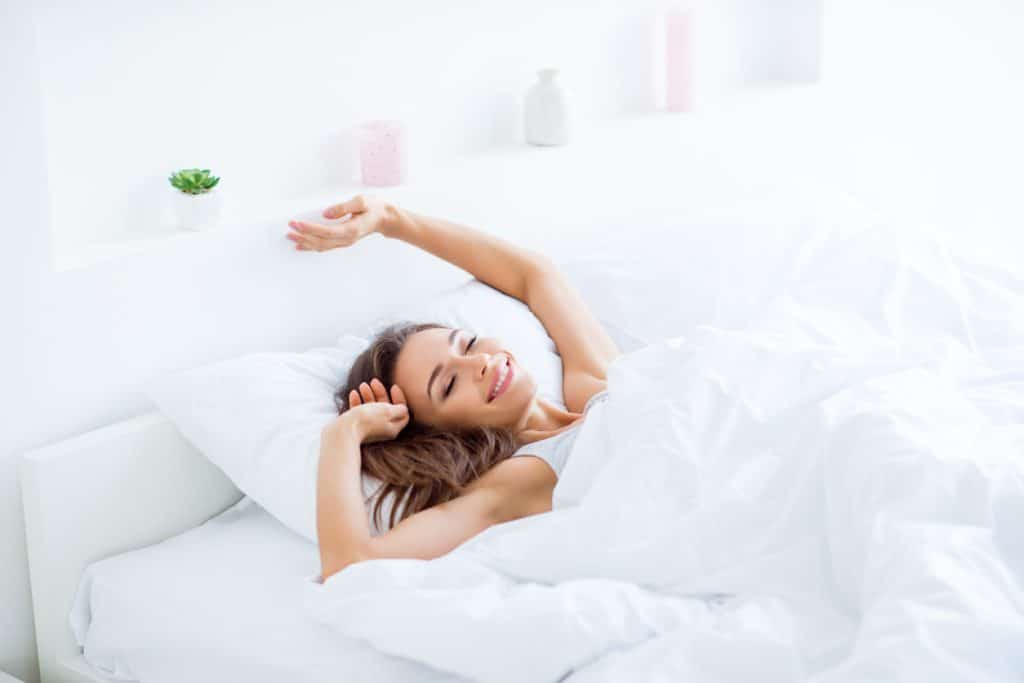Today, we’re going to tackle a question that might cross your mind as you try to fall asleep on those restless nights or lazy Sundays: “Is rest the same as sleep?” While they sound pretty similar, there are key differences. So, let’s pull back the curtains and explore the fascinating worlds of sleep and rest.
Definition of Sleep and Rest
First things first, let’s get our definitions straight. Sleep is a natural, recurring state of mind and body where consciousness is altered, sensory activities are inhibited, and we dip into various stages of sleep, from REM sleep to the deepest sleep stage. It’s during these stages that many sleep-related functions occur and we enjoy the most restful and recuperative sleep.
On the other hand, rest refers to a period or state of relaxation, where physical activity is minimal and our physical and mental state gets a well-deserved break. Both sleep and rest are crucial for our health and well-being, and both deserve a spot in our daily routines.

What Is Considered Rest?
Rest isn’t just about lying down in your favorite armchair close to the end of a busy day. It comes in various forms. Physical rest could mean laying down, while mental rest could involve practicing progressive muscle relaxation. Any activity that allows your body and mind to recover from exertion can be considered restful.
The Difference Between Rest and Sleep
While rest and sleep are both states of low physical activity, they are not the same. Sleep involves distinct stages, including REM (Rapid Eye Movement) and non-REM sleep, each with unique benefits, such as memory consolidation and delta wave activity in the important delta wave stage. These sleep-related functions do not occur during rest, underscoring the crucial importance of a good night’s sleep.
The Role of Sleep Cycles and Stages
Let’s delve deeper into the realm of sleep. Your sleep cycle includes various stages from light sleep to deep sleep and REM sleep. Each stage plays a critical role in various restorative functions. From tissue repair and energy renewal in the deepest sleep stage, to memory consolidation and creativity boost during REM sleep – each stage of sleep has its unique benefits. Rest, on the other hand, doesn’t involve these stages, which limits its rejuvenating effects compared to actual sleep.
Is Lying in Bed Resting as Good as Sleeping?
Imagine this: you’re lying in bed, eyes closed, but you haven’t fallen fast asleep. Does this count as good rest? Indeed, it does, to an extent. Laying in bed resting can help reduce physical activity and lower blood pressure, providing some benefits. However, it doesn’t offer the same benefits as actual sleep, where your body temperature drops, metabolic systems release hormones, and sleep spindles, k complexes and delta waves dance through your sleep cycle.
Does Lying with Your Eyes Closed Count as Sleep?
So, you’re lying there, eyes shut tight. Are you sleeping yet? Surprisingly, the answer is no. Closing your eyes isn’t equivalent to being in REM stage or non-rapid eye movement sleep. Sleep involves specific physiological processes and patterns of brain activity, including delta waves and other wave forms. You might have entered a state of quiet wakefulness, which is different from sleep, but can still provide relaxation and restfulness.
Is Laying Down Without Sleeping Restful?
Now, let’s say you’re just laying down without sleeping after a busy day. That’s restful, right? Absolutely! Laying down without sleeping can provide physical rest, reduce blood pressure, and offer a mental break. However, it doesn’t provide the same benefits as actual sleep, where numerous sleep-related functions occur, such as memory consolidation and the increased incidence of dreaming during rapid eye movement sleep.
Can You Be Rested Without Sleeping?
Now comes the big question: can you be rested without getting enough sleep? While rest can provide temporary relief from fatigue, it can’t replace the crucial importance of sleep. If you’re chronically sleep-deprived, no amount of rest can fully compensate for the sleep you’ve missed. Sleep deprivation can lead to a weakened immune system and a decline in cognitive performance, among other issues.
The Impact of Sleep Deprivation
Sleep deprivation isn’t just about feeling groggy or mentally exhausted the next day. It can lead to impaired cognitive function, mood disorders, and even a weakened immune system. It’s important to recognize that rest can’t fully make up for the physiological needs fulfilled by proper sleep. So, prioritizing a good night’s sleep isn’t just a good idea – it’s essential for your physical and mental well-being!
If You Are Resting with Your Eyes Closed but Not Fully Sleeping, What Benefits of Sleep Do You Get?
If you’re resting with your eyes closed but not fully sleeping, what sleep benefits are you reaping? This state of quiet wakefulness can provide some benefits, like a decreased heart rate and lower blood pressure. However, it’s not a full substitute for sleep, as it doesn’t provide the deep restorative benefits of REM and non-REM sleep, crucial for memory consolidation, learning, and physical restoration.
Power Naps vs Rest
Here’s a fun fact: power naps and rest can sometimes serve similar purposes! A quick rest or a short nap can provide an alertness boost and mental clarity, improving mood and increasing alertness. On the other hand, rest can offer relaxation without the deeper physiological changes associated with sleep. Depending on your circumstances (like if you’re short on time or feeling stressed), one might be more beneficial than the other.
Read also: Is 2 hours sleep better than none?
Techniques to Improve Rest and Sleep Quality
Improving the quality of both rest and sleep can make a huge difference in your daily life. Practices like meditation, mindfulness, and progressive muscle relaxation can enhance restfulness. Good sleep hygiene – like maintaining a regular sleep schedule, creating a sleep-friendly environment, and avoiding stimulants close to bedtime – can help you get quality sleep and ensure your mental health stays in good shape.
Ultimately, rest and sleep are both essential for maintaining physical and mental health. A few simple strategies can help you make the most of both!
So, if you’re looking to improve your health, focus on getting a good night’s sleep as often as possible – and don’t forget to take breaks throughout the day for a little restful downtime. With the right balance of rest and sleep, you’ll be feeling refreshed and energized in no time!
For tips on how to improve your sleep quality when sharing a bed with your partner, read our guide to sleep hygiene for couples.
Conclusion: The Balance Between Rest and Sleep
Sleep and rest, while different, are both essential for our health, productivity, and overall well-being. It’s about finding the right balance and understanding that while rest is beneficial, it’s not a substitute for a good night’s sleep.
